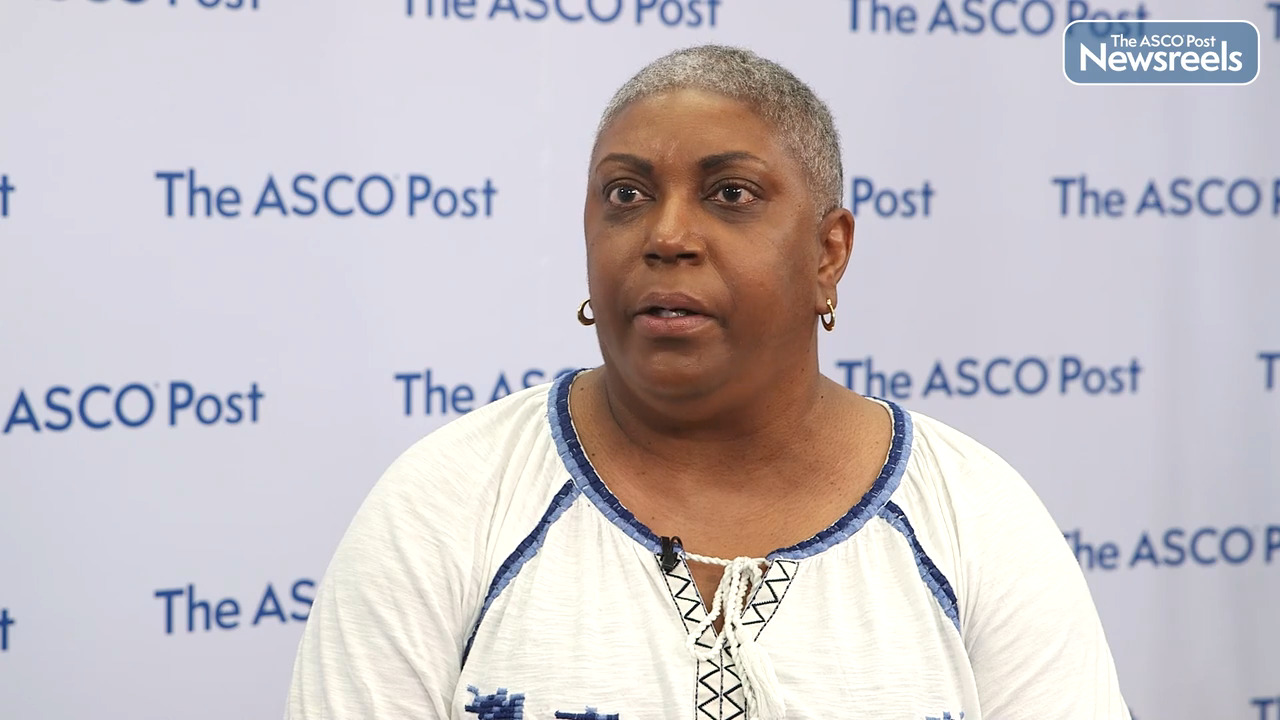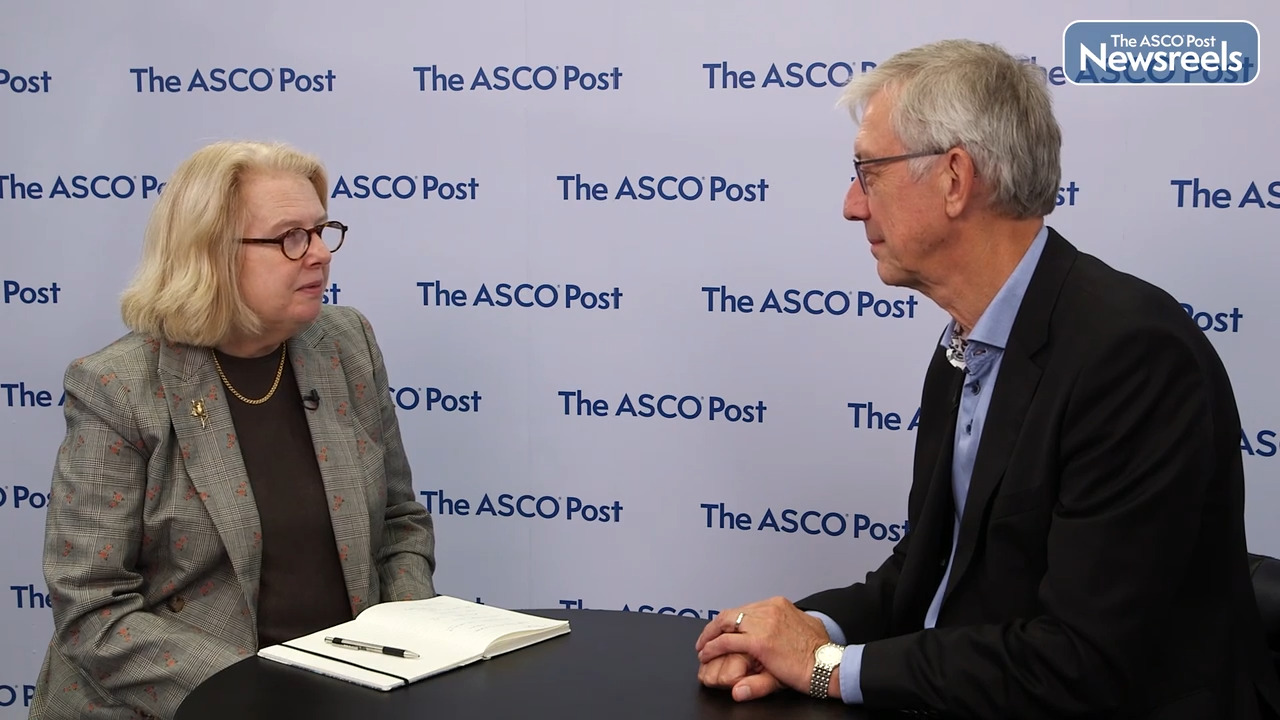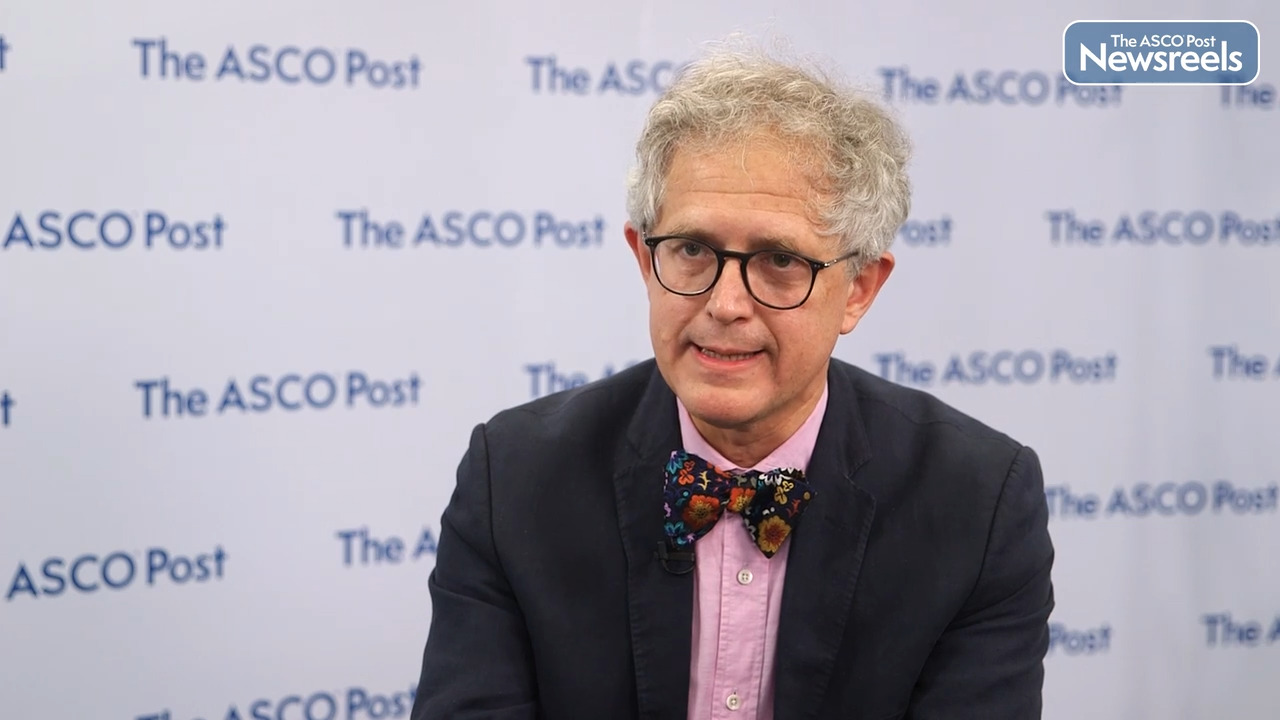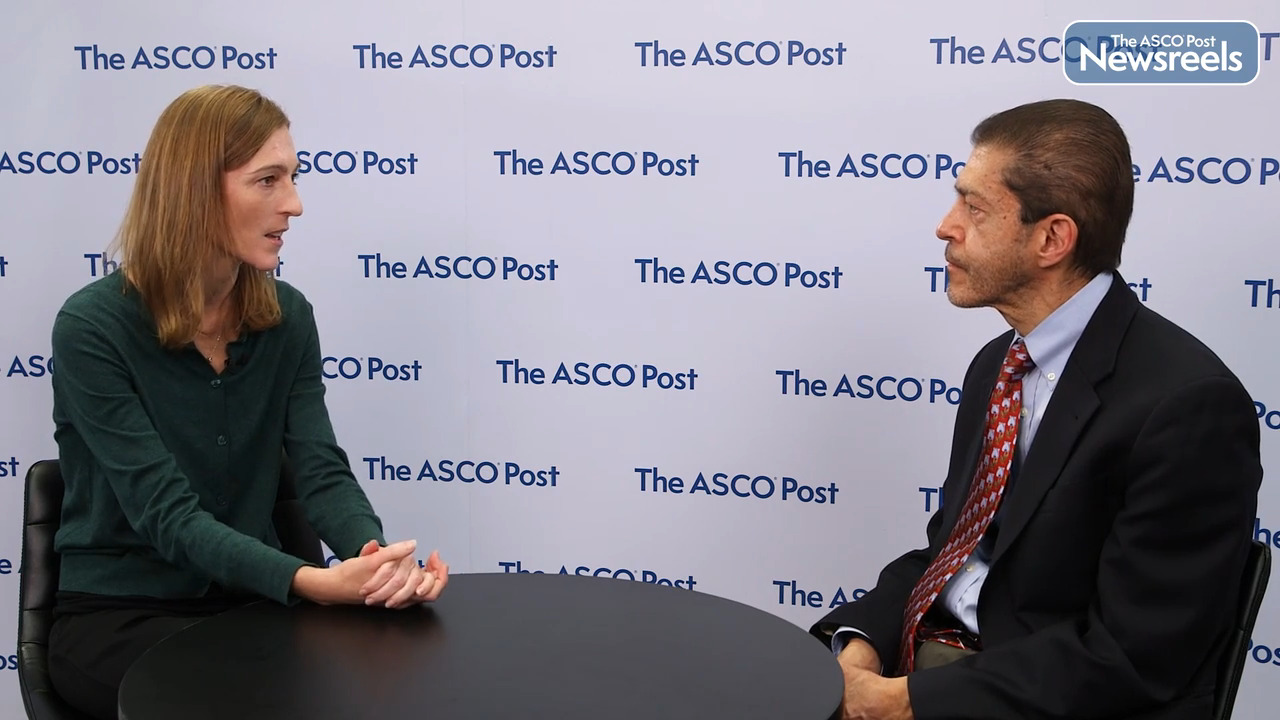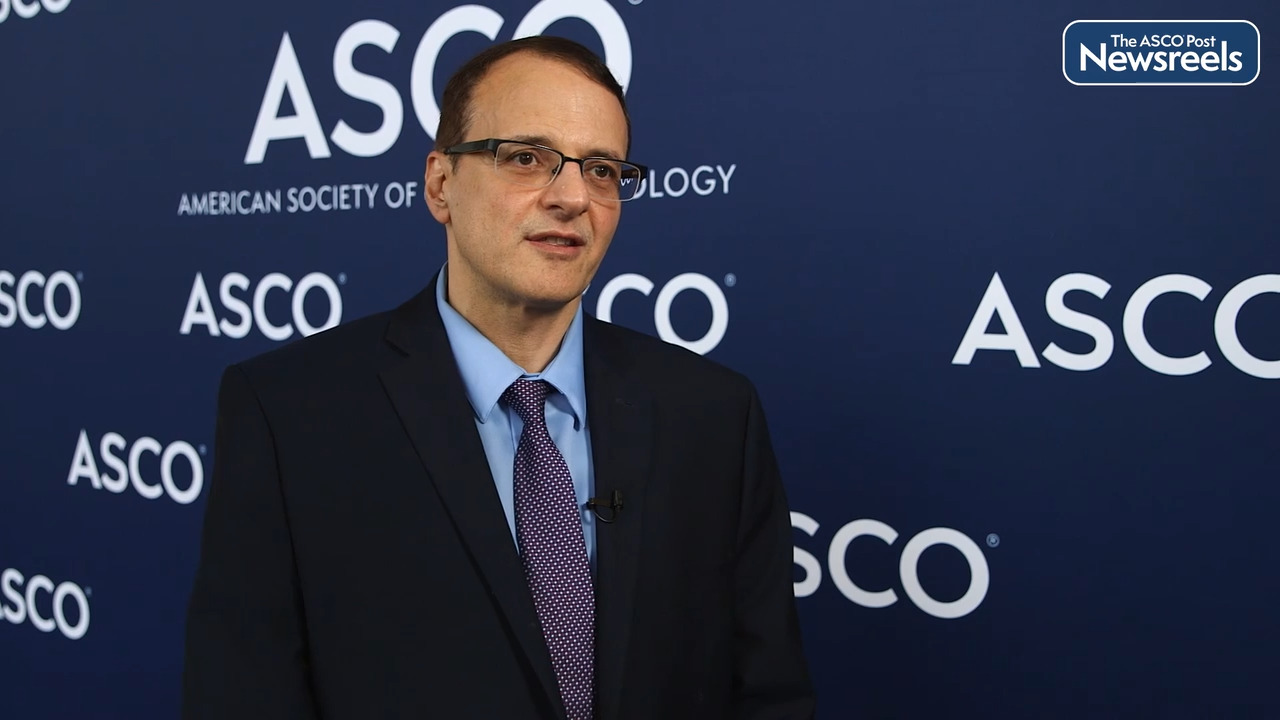Manali I. Patel, MD, MPH, on Equitable, Value-Based Care: The Effectiveness of Community Health Worker–Led Interventions
2022 ASCO Annual Meeting
Manali I. Patel, MD, MPH, of Stanford University School of Medicine, discusses clinical trial findings on the best ways to integrate community-based interventions into cancer care delivery for low-income and minority populations. Such interventions may improve quality of life and patient activation (often defined as patients having the knowledge, skills, and confidence to manage their health), as well as reduce hospitalizations and the total costs of care (Abstract 6500).
Transcript
Disclaimer: This video transcript has not been proofread or edited and may contain errors.
I'm so excited to present our work that's been a multi-year collaboration with a community-based organization and employer union health fund that provides health benefits to individuals who would otherwise not have health insurance. These are individuals that drove us to McCormick. They're individuals that work in our hotels here in Chicago. They're also individuals that work in casinos across the United States. They approached us almost 10 years ago, asking for us to help to consider how to redesign cancer care, such that their employees, once they were diagnosed with cancer, would be able to achieve equitable care at lower costs. 10 years ago, we launched an initiative. We conducted a pilot study in Chicago amongst individuals here where we paired them with a community health worker to help to engage patients in advanced care planning, as well as symptom management. And we found significant improvements in goals-of-care documentation. Using community-based participatory research methods, which means that we involved a community advisory board who guided us throughout every aspect of the project, we created a randomized trial of the pilot. Individuals that were randomized to the intervention arm received a community health worker as part of their care. This community health worker was bilingual and bicultural and would assist patients with advanced care planning and symptom management, but then also assisted patients with screening for complications from social determinants of health. So, for example, they would screen for food insecurity and connect patients to the local food bank, or they would screen for housing insecurity and connect individuals to the housing authority. Individuals as part of usual care received a benefit redesign. Every individual, either in the intervention arm or in the usual care arm, which received usual care, which was the control group, they received cancer care services that were free of charge if they went to the oncology provider that was the highest performing in the city. We conducted this randomized trial in Atlantic City and Chicago. There were 160 individuals that were randomized, 80 into each arm. And we followed patients for 12 months in an intent-to-treat analysis. And what we found was a significant improvement in our primary outcome, which was health-related quality of life. And that was an improvement of almost 11 points in the functional assessment cancer therapeutics general assessment. We also found significant reductions in acute care use, meaning hospitalizations reduced over a 12-month period. So mean hospitalizations amongst individuals in the intervention arms was significantly lower than those in the control room. We also found significant improvements in people's engagement and confidence to manage their own health, something called patient activation. And then here at ASCO, we presented the results on total cost of care as well, and found a significant reduction in total cost of care of almost 50% median total cost of care difference. These results move us from action of disparities to interventions that help to achieve health equity. And the next step is to disseminate this work across all the employer union health fund practices across the United States.
Related Videos
The ASCO Post Staff
Stephanie Walker, a former nurse and current activist with the Metastatic Breast Cancer Alliance, discusses findings from the BECOME project (Black Experience of Clinical Trials and Opportunities for Meaningful Engagement). They show that, even though Black patients comprise between 4% and 6% of all clinical trial participants, Black women with metastatic breast cancer are willing to consider taking part if steps were taken to increase their awareness, build trust through clear communication with health-care providers, involve people of shared racial/ethnic identity and health experience, and help patients find and access trials (Abstract 1014).
The ASCO Post Staff
Ursula A. Matulonis, MD, of Dana-Farber Cancer Institute, and Ignace Vergote, MD, PhD, of Belgium’s University Hospitals Leuven, discuss interim safety and efficacy results from a third dose-expansion cohort evaluating first-line tisotumab vedotin-tftv plus pembrolizumab in patients with recurrent or metastatic cervical cancer. Data on the combination showed durable antitumor activity with a manageable safety profile (Abstract 5507).
The ASCO Post Staff
Etienne Brain, MD, PhD, of the Institut Curie, discusses phase III findings from the Unicancer ASTER 70s trial, in which patients aged 70 or older with estrogen receptor–positive, HER2-negative breast cancer and a high genomic grade index received adjuvant endocrine therapy with or without chemotherapy. The data did not find a statistically significant overall survival benefit with this treatment after surgery (Abstract 500).
The ASCO Post Staff
Courtney D. DiNardo, MD, MSCE, of The University of Texas MD Anderson Cancer Center, and Jorge E. Cortes, MD, of Georgia Cancer Center at Augusta University, discuss phase III results from the ASCEMBL trial, which showed that after more than 2 years of follow-up, asciminib continued to yield superior efficacy and better safety and tolerability vs bosutinib in patients with chronic myeloid leukemia (CML) in chronic phase. These results continue to support the use of this kinase inhibitor as a new CML therapy, says Dr. Cortes, with the potential to transform the standard of care (Abstract 7004).
The ASCO Post Staff
Nabil F. Saba, MD, of Winship Cancer Institute of Emory University, discusses new data from a trial of pembrolizumab and cabozantinib in patients with recurrent metastatic head and neck squamous cell carcinoma. The study met its primary endpoint of overall response rate. The regimen was well tolerated and exhibited encouraging clinical activity in this patient population (Abstract 6008).
